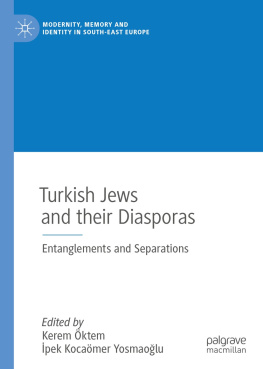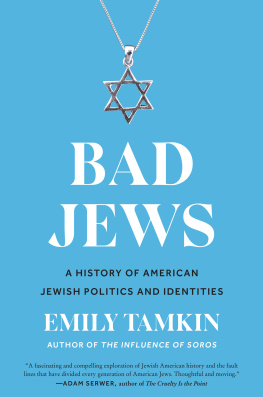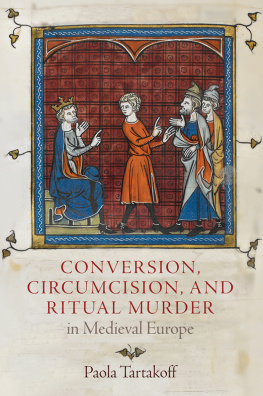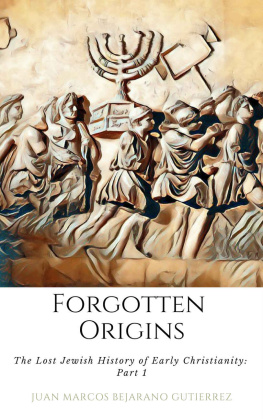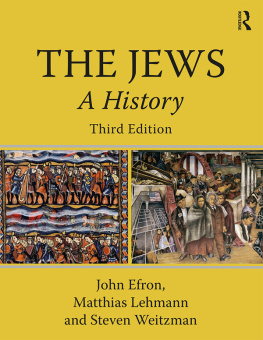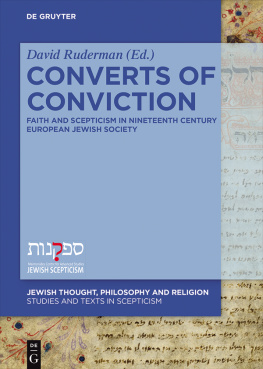Todd Endelman - Leaving the Jewish Fold: Conversion and Radical Assimilation in Modern Jewish History
Here you can read online Todd Endelman - Leaving the Jewish Fold: Conversion and Radical Assimilation in Modern Jewish History full text of the book (entire story) in english for free. Download pdf and epub, get meaning, cover and reviews about this ebook. year: 2015, publisher: Princeton University Press, genre: Religion. Description of the work, (preface) as well as reviews are available. Best literature library LitArk.com created for fans of good reading and offers a wide selection of genres:
Romance novel
Science fiction
Adventure
Detective
Science
History
Home and family
Prose
Art
Politics
Computer
Non-fiction
Religion
Business
Children
Humor
Choose a favorite category and find really read worthwhile books. Enjoy immersion in the world of imagination, feel the emotions of the characters or learn something new for yourself, make an fascinating discovery.

- Book:Leaving the Jewish Fold: Conversion and Radical Assimilation in Modern Jewish History
- Author:
- Publisher:Princeton University Press
- Genre:
- Year:2015
- Rating:4 / 5
- Favourites:Add to favourites
- Your mark:
Leaving the Jewish Fold: Conversion and Radical Assimilation in Modern Jewish History: summary, description and annotation
We offer to read an annotation, description, summary or preface (depends on what the author of the book "Leaving the Jewish Fold: Conversion and Radical Assimilation in Modern Jewish History" wrote himself). If you haven't found the necessary information about the book — write in the comments, we will try to find it.
The definitive history of conversion and assimilation of Jews in Europe and America from the eighteenth century to the present
Between the French Revolution and World War II, hundreds of thousands of Jews left the Jewish foldby becoming Christians or, in liberal states, by intermarrying. Telling the stories of both famous and obscure individuals, Leaving the Jewish Fold explores the nature of this drift and defection from Judaism in Europe and America from the eighteenth century to today. Arguing that religious conviction was rarely a motive for Jews who became Christians, Todd Endelman shows that those who severed their Jewish ties were driven above all by pragmatic concernsespecially the desire to escape the stigma of Jewishness and its social, occupational, and emotional burdens.
Through a detailed and colorful narrative, Endelman considers the social settings, national contexts, and historical circumstances that encouraged Jews to abandon Judaism, and factors that worked to the opposite effect. Demonstrating that anti-Jewish prejudice weighed more heavily on the Jews of Germany and Austria than those living in France and other liberal states as early as the first half of the nineteenth century, he reexamines how Germanys political and social development deviated from other European states. Endelman also reveals that liberal societies such as Great Britain and the United States, which tolerated Jewish integration, promoted radical assimilation and the dissolution of Jewish ties as often as hostile, illiberal societies such as Germany and Poland.
Bringing together extensive research across several languages, Leaving the Jewish Fold will be the essential work on conversion and assimilation in modern Jewish history for years to come.
Todd Endelman: author's other books
Who wrote Leaving the Jewish Fold: Conversion and Radical Assimilation in Modern Jewish History? Find out the surname, the name of the author of the book and a list of all author's works by series.

